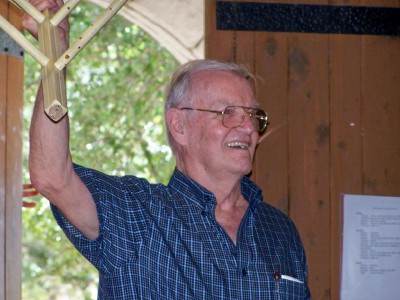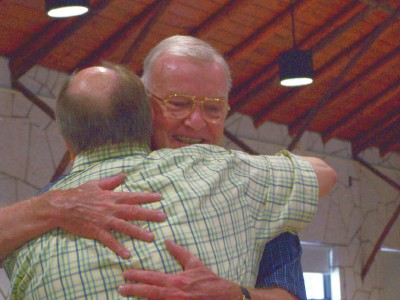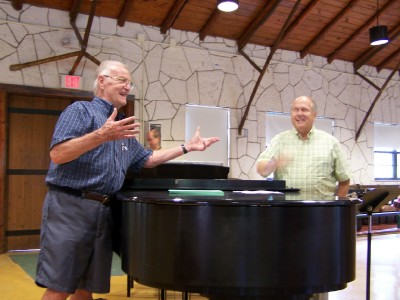 Dr. Robert R. Ball
Dr. Robert R. Ball
Sermon from December 13, 1970
Memorial Drive Presbyterian Church, Houston Texas
WHERE AUTHENTIC PEOPLE MEET
 |
W h e r e i s C h r i s t B o r n ?
WHERE AUTHENTIC PEOPLE MEET
Scripture: Matthew 18:15-20
sermon by
Dr. Robert R. Ball
Memorial Drive Presbyterian Church
Houston, Texas – December 13, 1970
The Christmas season seems a strange time to be thinking
about loneliness. On the other hand, there may be no other time
when our loneliness is more apparent. It will be so for our
servicemen in prisons in North Vietnam, and it will be so for their
families here at home. It may be so for us in the rush and push
of the Christmas shopping crowds.
As we drive and admire the colorful decorations on the homes
in this community, it hardly seems possible that any crushing
loneliness exists inside. Father sits in his favorite chair. The
crackling fire casts a glow of homey warmth. But he cannot
speak to his wife there on the couch of the ache that fills his heart.
Mother goes over the Christmas card list one more time. It’s
something to do, something to take her mind from how shut-off
and helpless she feels. Daughter is half watching TV and half
studying, and wishing with all her might that there was someone
who could understand how miserable she is. It could be any
home. In some way, it is every home. The most confining walls in
the world are the barriers of fear and feeling that keep us
separated from each other.
It’s not a new problem. If some hurt feeling separates you from
your brother, says our scripture, go talk to him about it. If he won’t
listen to you, get one or two others to act as interpreters between
you. If that does no good, see what your mutual friends at the
church can do. If, even then, he still refuses to break down his
wall of hostility, don’t storm the gate. No one can be forced to be
human. God himself doesn’t do that. The opportunity to come out
of our prison of loneliness, to break forth into the beauty of life, is
always a personal choice. Just understand that it is a choice
between being alive and existing in a living death.
I.
One of the most prominent psychotherapists in the world
describes loneliness as a prison house, and he calls it “The
deepest of all human problems.” Loneliness is not just a problem
in itself; it makes every other bad thing that much worse.
One day something happens that leaves you feeling
especially lonely and unappreciated. Someone else in the family
comes along and says something or does something that
normally wouldn’t bother you a bit. In fact, it might even make you
laugh. But not today. Today it strikes you as just one more
slighting insult. So you lash back at him. Or perhaps you refuse to
respond at all. Either way, you have now effectively walled
yourself off from one more person. You have made your isolation
even more complete, right at a time when what you need most is
to be loved.
Even though you are hurt and angry, you are smart enough to
have some sense of what is going on. You know you have been
unreasonable, but that only makes you all the more disgusted with
yourself; and when you don’t like yourself, it is almost impossible
to believe that anyone else could like you. If they seem to, you
reason, it’s because they are faking, or else they just don’t
understand what a rat you are.
So, we keep it all inside, hoping they’ll never find out what we’re
really like. Life gets pretty tense. They might find out about us in
spite of our efforts to hide. We’re caught between trying to hide
who we are and wishing with all our hearts that someone could
know and understand us. That’s what you call a “double -bind.”
On the one hand, we yearn desperately for others to give us
indications of their affection and approval, but we are afraid to let
them really know us. On the other hand, if any indications of
approval do come, we don’t believe them. We know we’re no
good. If they really knew us, they would know it too. With our guilts
and fears locked inside of us, it makes every bad thing even
worse. We can hardly do good things when we are convinced that
who we are is a bad person.
Life with other people gets to be pretty fakey. All too often, our
apparent cheerfulness and confidence is covering for a deep hurt
stuck in our stomachs. And even when we are truly rejoicing,
there is no one with whom we have a close enough relationship
that we can share the euphoric joy of it. We really don’t need a
theologian or a psychiatrist to tell us that being confined within
ourselves is not really living.
“If no one cares and no one shares,
where’s the joy in a job well done?”
II.
Jesus Christ comes into the world to break us out of the prison
house of our loneliness, but he cannot help if we refuse to let him
come inside.
When I was a youngster in Sunday School, they used to drill us
on the catechism. One of the questions was, “What is the shortest
sentence in the Bible?” The answer is, “Jesus wept.” But do you
know the occasion for his weeping? It was as he looked down at
the city of Jerusalem, at their arrogant hostility.
“How often would I have drawn you unto
myself as a hen does her chicks, but you
would not. And Jesus wept.”
If I keep up a tough exterior, with the hurts and hopes of my
life swirling around in the secret of my insides, no new life will
ever get through to me. If I fear that to confess I am wrong
would destroy me, then I must maintain a front that says I am just
fine. I have neither the time nor the need for a Savior. But if I dare
to believe that my wrong can be forgiven, and that far from
destroying me it would be a new beginning, then it is possible to
open myself. Jesus says we don’t have to go on living in the
degenerating prison house of our aloneness. God can produce
new beginnings faster than we can manufacture boo-boos.
Last week’s paper carried the story of a girl who had been a
member of the militant SDS organization. Now she wants to have
nothing more to do with that group. She was quoted as saying, “I
just wish I could be 19 all over again.” There’s no way to be 19
again; but there is the possibility of a new beginning at 23, or any
other age. That’s the kind of world God has created, a world of
new beginnings; but it won’t be that kind of world for us until we
have discovered it for ourselves. In order to discover it, we have
to leave the refuge of the lonely prison in which we have
confined ourselves, and venture out into the world – to
experience God’s grace for ourselves.
William Temple, the late Archbishop of Canterbury, once
observed how ridiculous it is for a person to say he will confess
sins to Almighty God which he would never disclose to another
human being. There’s no great risk or pain involved in whispering
our guilt and fear to an invisible God in the darkness of our own
rooms. Neither is there any life-changing reality to the forgiveness
that comes to us as an impersonal, intellectual idea. We have not
really opened ourselves to God until we trust him enough to open
ourselves to each other. Bonhoeffer says, “When I go to my
brother to confess, I am going to God.”
III.
Not being much of a mystic, I hardly qualify as an expert in
religious experiences. I can only say that the most significant
religious moments of my life have come as a result of
relationships with people, people who were authentically
themselves to me and who allowed me to be authentically
myself to them. They didn’t necessarily approve of all i had done,
but they accepted me as a person who was making an honest
effort.
I come away feeling stronger, more capable of handling life.
Through these persons, I have experienced the reality of the love
and forgiveness of God in Jesus Christ. Now when I say that the
love of God is real and the forgiveness of God does change
things, it is not just something I read in a book. The only way
anyone ever knows the truth is by participating in that truth. we
know Christ when we have participated personally in his life – in
the giving and in the receiving of his love.
Have you ever wondered why it is that the magic of a
relationship sometimes happens and sometimes it does not?
Just being in church doesn’t make the difference. An authentic
relationship can happen only if I am willing to let another person
know me as I really am, let him know how I feel about being who
I am. If I am stuck with the fear of his rejection, I cannot let him
know me. But if I believe the gospel, believe that I am indeed, in
spite of everything, forgiven and worthwhile, then I can dare to let
myself be known. My openness offers the opportunity for the
other person to be open also, if he trusts that I am not just
conning him into exposing himself so I can shoot him down.
Two people meet, really meet, when Christ stands between
them. It is my confidence in Christ’s love and acceptance that
allows me to be my authentic self to that other person. When he
has that confidence also, the two of us meet as authentic persons.
No longer do we have to try to impress each other with how good
we are or how bad we are. We can simply be who we are to each
other. Each of us is released from our prison of aloneness, and it
is Christ who sets us free.
This is what Christ meant when he says,
“FOR WHERE TWO OR THREE ARE
GATHERED TOGETHER IN MY NAME,
THERE I AM IN THE MIDST OF THEM”
The love and forgiveness Christ brings can be experienced
only in relationships. Christ comes to us in our relationships in a
way he never comes to a person alone. Christ breaks us of out
of our killing loneliness and allows us to be authentic persons.
The summer after my release from the air force, I went to
Princeton to take the concentrated semester of Hebrew (which is
the most digestable way to take it). One of the most intelligent
and personable of my classmates that summer is now a college
chaplain and the author of five consecutive best-sellers.
In his most recent book, Fred Buechner tells of an
interpersonal relationship group which he and his wife joined with
more than a little misgiving. For weeks, Fred reports, the focus
of attention moved from one person to another in the group. Fred
says that he waited very patiently for it to be his turn, both hoping
for it and dreading it; but just at the moment when his time came,
a woman in the group did something that turned the attention
away from him. It was then for the very first time that he really got
involved in the group. Here is how he describes it.
“I found myself blurting out what was
probably the only authentic utterance
I’d managed there yet. It had been my
moment, my time, I told her, and now it
was her moment, and I hoped she was
satisfied, or something like that. And then
the ancient and I suppose holy thing
happened, the miracle, if you’re given to
such terms.
“A man spoke who was a teaching
colleague of mine. What he said was,
‘That’s all right, Freddy. Don’t be upset.
We love you too.’ We love you, he said,
of all the inane and shattering things he
could have said, and he meant it, I could
tell, that most unsentimental man in that
most unlikely of places.
“Whatever ‘we love you’ means, he meant
it – that at least for a moment they had seen
who I was, really saw more or less who it
was who had been sitting there in that face
all those weeks awaiting and dreading his
time, and they wished me well, they willed
my good, my peace. It was only then that I
realized that this was why I had kept coming
all those weeks and why, perhaps, they had
all kept coming, perhaps even in some sense
why I have come here to speak to you now
and why you have come to listen: to bew
known, to be forgiven, to be healed, which I
suppose is to say, if the word is not beyond
all hope of salvage, to be loved. This
ancient and most holy miracle.”
In some sense, this is why each of us is here today, each in
our own personal and particular form of loneliness. We may
choose to remain hidden or we may choose to know and be
known. It’s the choice we have to receive life. If we choose it, the
Christ who came into the world at Christmas promises to come to
us.
“FOR WHERE TWO OR THREE ARE
GATHERED TOGETHER IN MY NAME,
THERE AM I IN THE MIDST OF THEM”
 |
 |